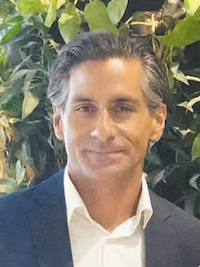How important is it to provide effective feedback and coaching, and what is the place of performance ratings when providing this feedback?
An engaging group of HR leaders discussed how to create a high-performance culture and measure efficiency at the latest ChapmanCG roundtable hosted by Pakorn Pituvong, Thailand HR Head for Chubb in Bangkok.
A real-time, conversation-based approach
Schneider wanted performance to become less of a process and more focused on the employee, and so implemented a real-time, conversation-based approach, according to Andre Young, Head of Human Resources for Thailand and Laos.
This included the use of digital tools to create constant feedback and communication between line managers and employees, rather than annual or biannual performance reviews.
Managers were given bite-sized trainings on two important skills – reinforcing the principles of coaching for performance and giving effective feedback. This was based on the principle that effective training is about the quality rather than the length of the training.
The HR team trained internal trainers who then trained internal leaders and managers. This helped to accelerate the change process.
Schneider also used a program called ‘walk with me’, which emphasised having regular, informal conversations on performance over a coffee or during a short walk.
Aligning awards with performance
High performance needs to be aligned with awards. Retaining non-performers can have an impact on high performers in the long run by negatively impacting total rewards pools. It also sends the wrong message, and means others have to pick up the load.
Attrition can be high at the start of a process, which can be good if it relates to low performers leaving the organisation.
Clarity on new performance requirements
An organisation needs to be clear on where the company wants to be and the sort of profile that will fit within the organisation.
Many organisations were moving towards a new employee profile where critical thinking, design thinking and problem solving were in the spotlight. This including exploring, observing and trying to come up with innovative new solutions.
As part of this, it is critical to let people fail and not punish any failures in order to encourage creativity. Where initiatives fail, it is important to encourage people to share what they learned, what they would do differently next time, and make this into a broader conversation on the issue. This gives people the freedom and creativity to solve problems and go to the next level of thinking and performance.
Career development vs ratings
Many organisations are getting rid of ratings in favour of real-time, ongoing conversations. An approach was discussed in the group where employees have ‘levels’ rather than ‘ratings’, so that the focus is on the ongoing development and it reflects career progression rather than being a personal judgement.
No ‘one size approach’ fits all employees, and it is important to focus on each individual and their needs, as well as keep performance programs as simple as possible.
Performance management during times of transition
Changing performance management can be particularly critical during a major change, such as a merger or acquisition, according to Pakorn Pituvong at Chubb.
Pakorn shared his experiences of driving culture change and HR transformation during the integration with a local Thai company.
A new structure
In order to take the organisation to the next level and create an engaging and inspiring environment, the organisation needed a highly capable HR department that can implement robust employee engagement, talent attraction and development strategy.
To support this, Pakorn created a three-pillar model of HR business partners, a Centre of Excellence and shared services, with a focus on further developing the mindset of how they work together.
Employee engagement
Employee engagement played a critical role in creating a new performance culture within the local context. This included town hall sessions, discussion on career progression, changes to bonuses, and making the benefits of high performance clear to employees.
Pakorn’s team also focused on increasing engagement with senior leaders and the broader business.
Although at the beginning of the journey, Chubb is already seeing higher employee engagement and lower attrition as a result of these programs.
The pace of change
Changing the performance culture can be a long journey, particularly in emerging markets. It is important to move gradually in the right direction and be culturally sensitive, rather than have a big multinational try to come in and change the culture immediately. Performance programs need to take a long-term view and include significant engagement.
However HR leaders also discussed that this can be a challenge in the face of other business drivers within an organisation.
To help counter these issues, it is critical to coach business leaders, and have lines of continuous communication and feedback throughout the process.
We would like to thank all the HR leaders at the event for their insights into performance management, including representatives from Unilever, GSK, Roche, Philip Morris International and G4S.
For more articles and podcasts from the ChapmanCG Senior Leadership team, please visit our News page. Our global ChapmanCG team are here to help with all your HR executive search needs.
Key Contributors:


 Finian Toh
Finian Toh Steve Brown
Steve Brown  René Rosso
René Rosso Kirsty Jucker
Kirsty Jucker Andrea Merrigan
Andrea Merrigan Orelia Chan
Orelia Chan Stanislav Medvedev
Stanislav Medvedev Fleur Daniell
Fleur Daniell Tim Rayner
Tim Rayner Nicola Hasling
Nicola Hasling